‘It is electrifyingly exciting’: How Britain could be freed from fossil fuels forever
It’s something miners have always known: the further down you go, the hotter it gets. But, asks Harry Cockburn, can Britain catch up with the rest of Europe in using geothermal heat to help tackle the climate crisis

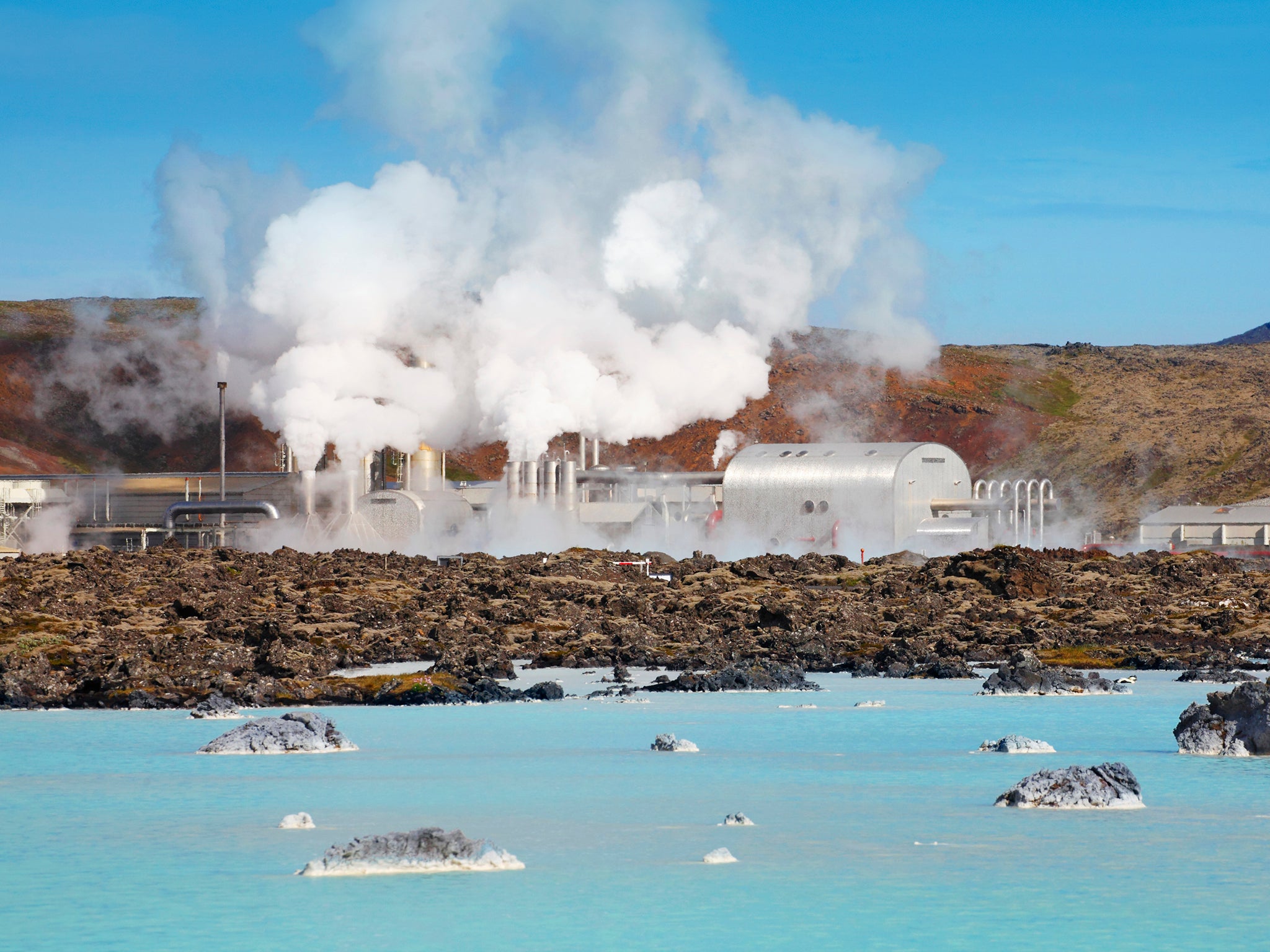
The core of the Earth is hotter than the surface of the Sun. Depending on how deep we dig, humans can tap an endless source of energy from the ground directly beneath our feet.
According to the most conservative estimates, across Britain, for every 1,000 metres down you go, temperatures rise by around 25-30C, and by much more in certain areas. And utilising this heat for our homes and businesses, as well as to generate electricity, has few drawbacks – next-to-no emissions, minimal surface equipment, and deployable in almost all locations.
Miners around the UK have known this for centuries: the deeper you go, the hotter the work. But unlike the coal, oil and gas routinely drilled for around these isles, this abundance of free heat has scarcely been harnessed in Britain.
Last month’s opening of the Eden Project’s new geothermal facility in Cornwall, which will supply heat to the whole site, marks the first operational deep geothermal project in the UK in 37 years.
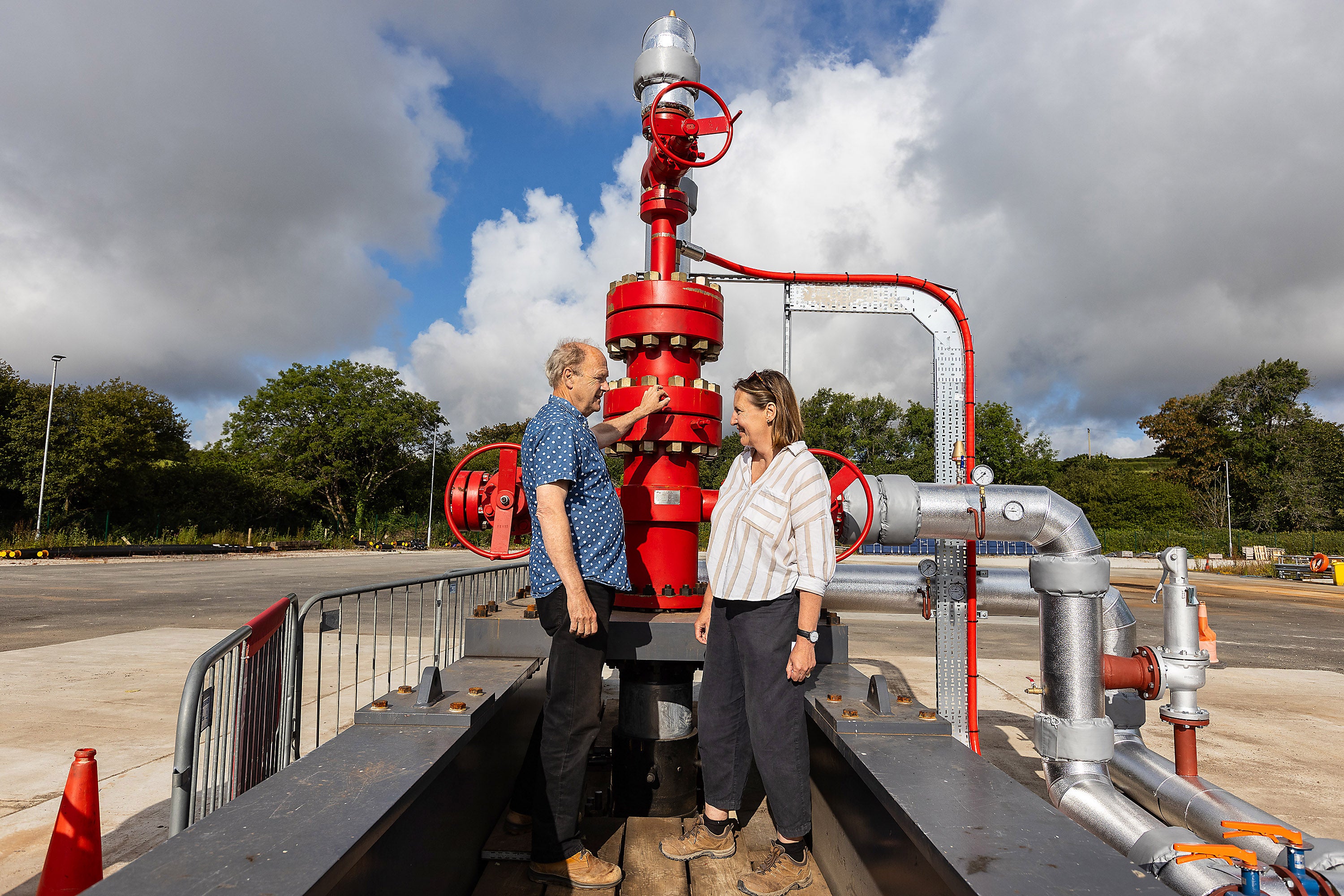
As Europe faces the economic carnage of fossil fuel energy prices driven up by the war in Ukraine, the squeezed supplies on the open market, and growing panic over the environmental toll, the appeal of reliable, homegrown, clean energy is clear.
In Iceland, every home is heated with renewable energy – almost entirely from geothermal sources. This is around 90 per cent from district geothermal heating systems and the remaining 10 per cent from electricity generated either using steam from that water or hydropower. Though Iceland is something of an outlier, benefiting from highly active tectonic movement, the UK is still lagging far behind, 29th in Europe for geothermal installations. Meanwhile, the Netherlands, Germany and France, which all share the same underlying geology as the British Isles, are rapidly increasing the amount of energy they produce in this way. In turn, this is securing thousands of jobs in energy generation, and producing clean, green heat and electricity.
In The Netherlands, there were 31 operational deep geothermal facilities at the start of 2022 and a further 19 projects in development. The country's government has recently announced €2bn (£1.7bn) in support for geothermal heat, while geologists believe a quarter of all of the country's energy could eventually be provided by geothermal sources.
Against the backdrop of recent findings from the government’s climate advisers that the UK is well off course to meet its legally-binding environmental targets, there is a renewed wave of support for geothermal power to help hit net zero by 2050.
A white paper setting out the huge potential for geothermal energy, commissioned by the North East Local Enterprise Partnership and the North of Tyne Combined Authority and funded by the Department for Energy Security and Net Zero, is due to be published in mid-July, and could put the UK back on track with geothermal energy.
Progress so far has been hampered by a lack of political vision, says Sir Tim Smit KBE, co-founder of the Eden Project.
“If we only work on the principle that we’re only going to deal with the emergency when it’s absolutely fully fledged, at that moment, it’s too late,” he tells The Independent.
“If you start now, we can actually do this thing, but you’ve got to turn it into a national adventure.”
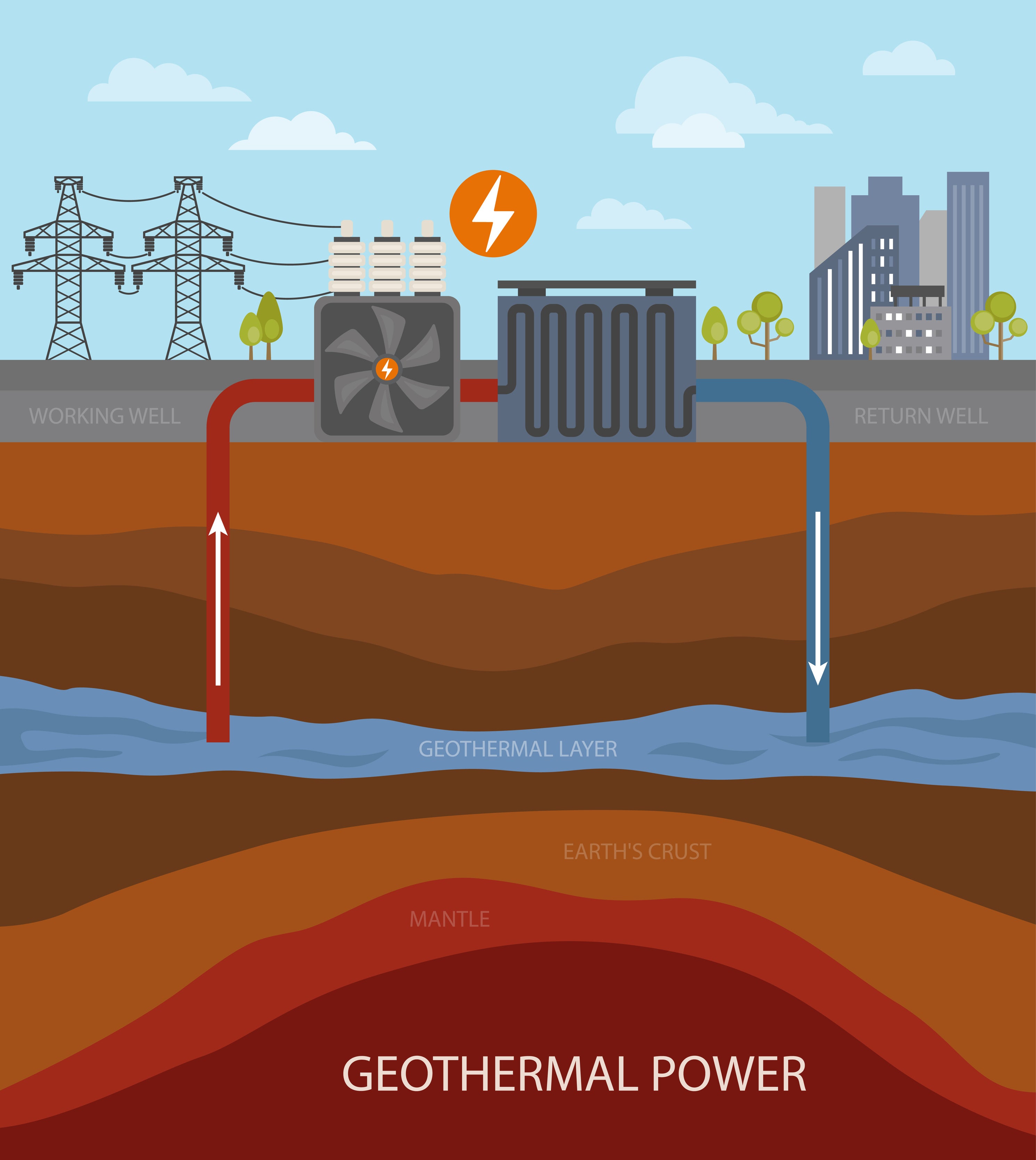
What our leaders must now do, he says, is offer a new narrative setting out the myriad opportunities the transition to a green economy will engender.
“Most people feel threatened by climate change, they feel anxious, they feel it’s something they can’t control, they feel that all the statements about recycling and the circular economy are somehow manufactured and it’s not quite true.”
Instead, he says, we must “become a nation whose story is that it is going to be energy independent”.
“Brunel would be turning in his grave at the lack of bravery in Britain, because we could make our country completely energy independent by 2030, let alone 2050, if we invested.
“But people say, ‘what about the cost?’ I say, if you were to ask future generations, a hundred years from now, whether you would mind just borrowing from them now to ensure they had a safe future, they’d say ‘for f***’s sake, it’s a no-brainer’. It’s a question of national will.”
Despite our poor record to date, the heat is now on in the energy sector, and a geothermal surge could be on the horizon in the UK. As well as the forthcoming white paper, new research providing more geological data is also due to be released later this year, according to Professor Jon Gluyas, director of the Durham Energy Institute and new president of the Geological Society.
We are “completely” failing to recognise the extent to which geothermal energy can play a part in the UK energy mix, he tells The Independent.
“Half of all the energy requirements in the UK is for heating – heating space and heating water. This accounts for around 33 per cent of all our greenhouse gas emissions. [Through geothermal] we could displace all of the fossil fuels from heating and thus knock out a big chunk of our dependency on imports and improve energy security.”
But he recognises it is an uphill struggle.
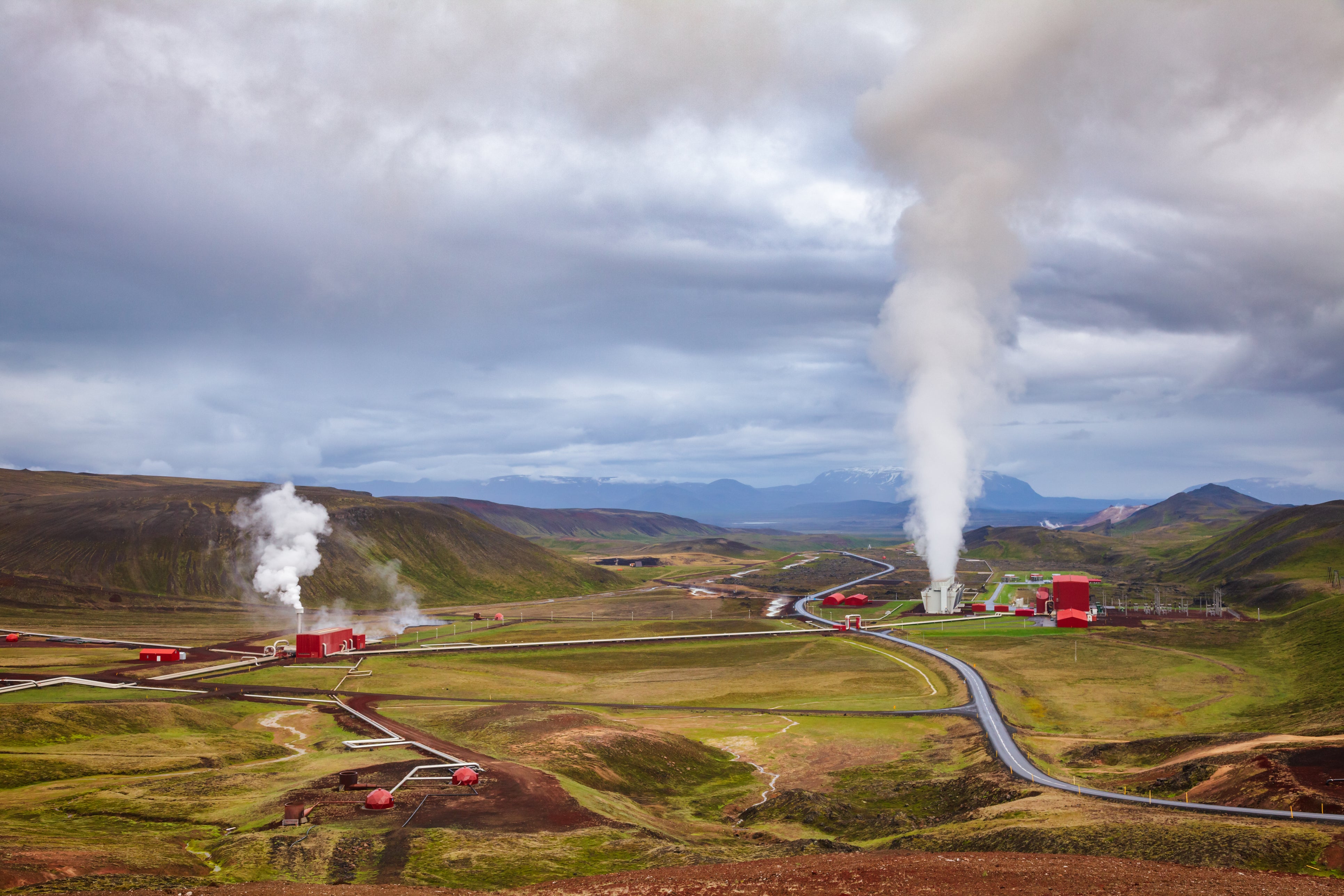
“The reason that as a country we’ve failed to get it on our radar is that as a petrol economy for the last 60 years, life has been easy. But now we’re behind the curve compared to France, Germany or Denmark or Sweden or Norway. Norway has been investing in their grandchildren’s grandchildren. But our geology is good – even better than Norway’s, and the heat will last forever.”
Other projects on the horizon in the UK include the United Downs geothermal facility, not far from the Eden Project, in Redruth, Cornwall, which will produce both heat and power, and is also scheduled for switch-on this year. Another is a project in Seaham, County Durham, which will use water from disused mineshafts to heat 1,500 new homes.
A longstanding hindering factor has been that profit margins in geothermal are not comparable to those in oil and gas, but nonetheless, they are similar to what you would see in many successful manufacturing businesses, Professor Gluyas says.
Furthermore, as the country shifts away from fossil fuels and becomes increasingly dependent on wind and solar, geothermal is a dependable way of maintaining baseloads required to balance the grid, and keep the lights on when the wind doesn’t blow.
Currently, a number of UK bodies, with backing from the government, are working to create a new National Geothermal Innovation Centre, with a core aim of driving commercial activity.
“What we think we can deliver by 2050 is 20 per cent of energy usage in the UK coming from geothermal projects”, Professor Gluyas says.
“We know the distribution across the UK very well – we know where the hotter bits and cooler bits are. The quantity of energy down there is just enormous.”
Back at the Eden Project in Cornwall, which is only in the first phase of a plan which will eventually also see electricity generated by geothermal energy, Sir Tim says a geothermal revolution could have far-reaching consequences.
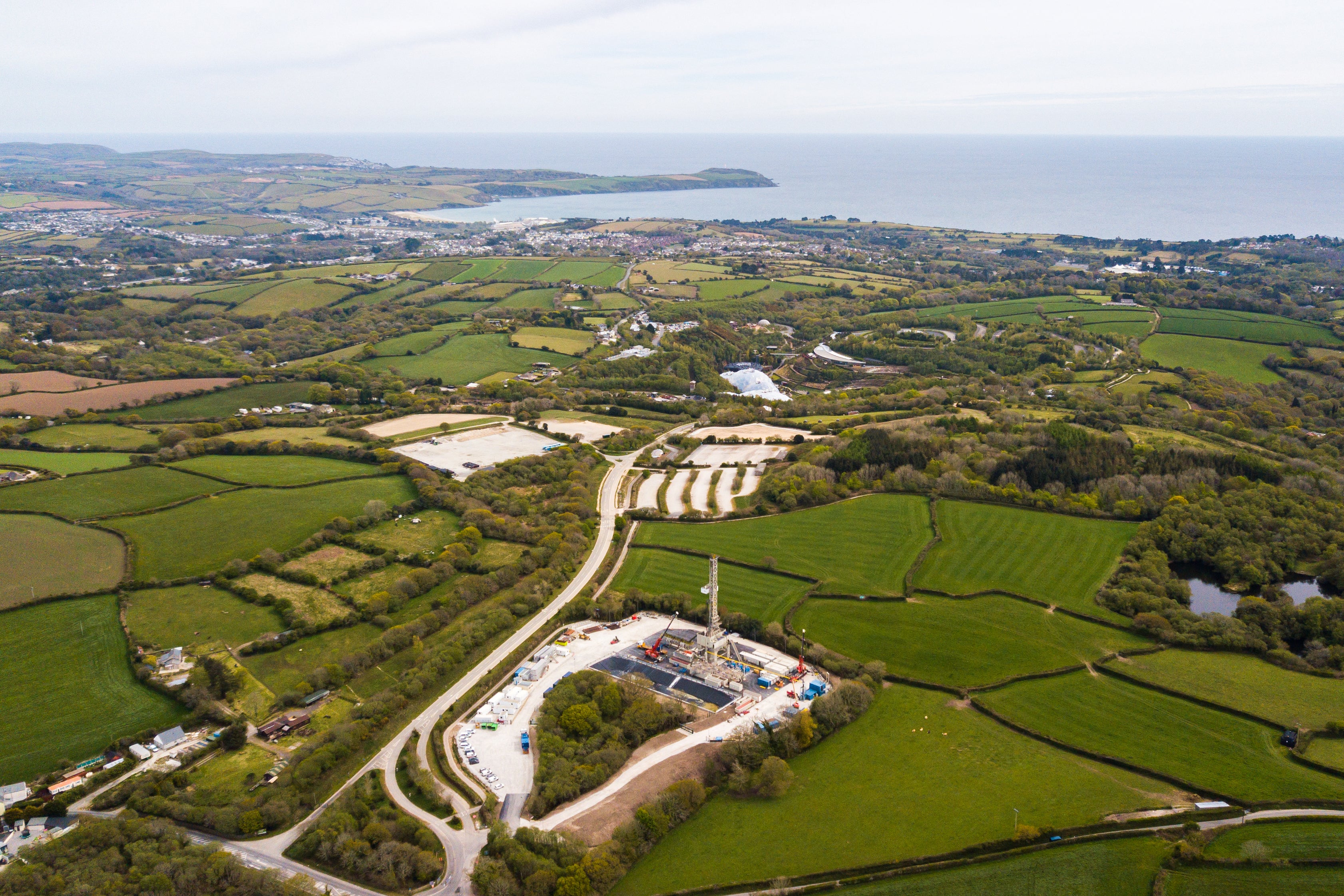
“It is electrifyingly exciting. Yes, you can heat people’s houses, and living in a temperate climate it’s necessary to warm ourselves up from the cold, but that hot water, in the quantities in which we could bring it up, would mean that you can grow anything at all in our country.”
He suggests this could lead to major positive changes in agriculture, food provision and distribution. But to realise this, systemic changes must be put in place by lawmakers to clear the path.
The first is one of political vision, he says. “If you come at it with the expectation that great stuff only ever happens anywhere else, you talk yourself out of it.”
Among politicians, he says “green tech is seen as a cost – almost as if it’s anti-capitalist”. Instead, he suggests “we talk about the green enlightenment, where we shift the basic capitalist environment to work with the grain of nature”.
The second change needed is in creating a fiscal environment conducive to green investment.
“We need access to capital, therefore some tax breaks that will allow people to invest would be really helpful,” Sir Tim says.
“Instead of being regarded as experimental, if geothermal was part of a national effort to reach energy independence, it would require a lot of capital. Tax breaks would help skew investment towards it.”






Join our commenting forum
Join thought-provoking conversations, follow other Independent readers and see their replies
Comments